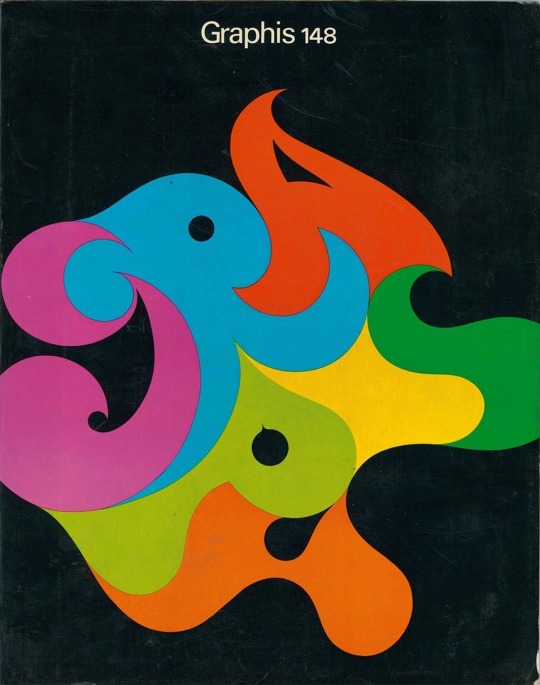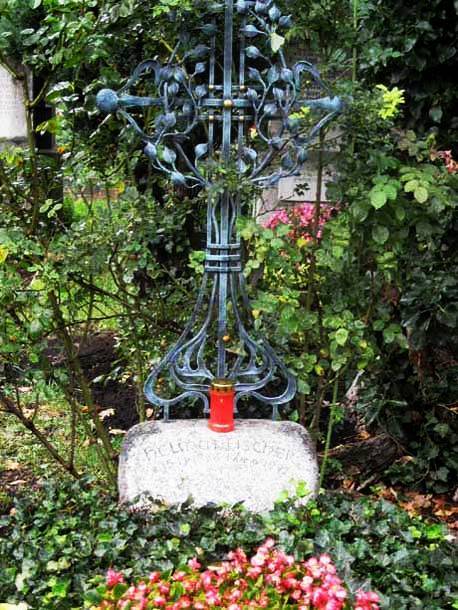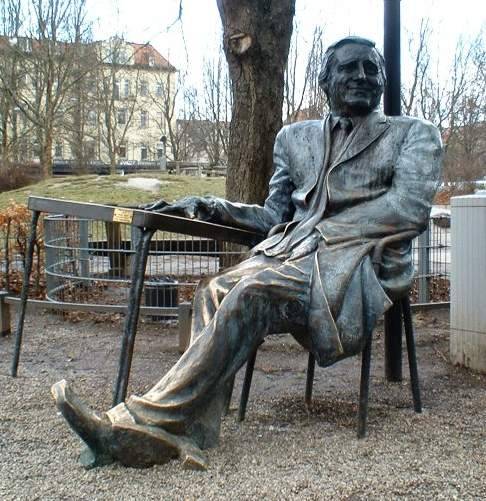#Fritz Gottschalk
Explore tagged Tumblr posts
Photo

1970 cover to design magazine Graphis, issue 148. Designed by Fritz Gottschalk
644 notes
·
View notes
Photo

Canada, 1972 // designer: Fritz Gottschalk.
3 notes
·
View notes
Photo

10 notes
·
View notes
Text
Top 20 Caterpillars
Another Wonderland countdown, AWAY!
The Caterpillar is an interesting case: in the book, he’s one of the few characters who is genuinely helpful to Alice...but being helpful is not the same as being friendly. The Caterpillar is a rude, lazy creature whose cutting-yet-slothful demeanor aggravates Alice immensely. Nevertheless, he still tries to give her advice and help her figure out a way to continue on her journey. Like so many characters in Wonderland - given their deranged minds and ambiguous ethics - the Caterpillar can go a couple different ways, but most people tend to make him a more positive figure rather than a negative one. A popular concept with the character has him acting as a sort of guru or oracular figure for the other characters; anytime they need help with a problem, want to know something they aren’t sure about, they inevitably come to find the Caterpillar and seek his aid. Sometimes he’s nice about it, other times not so much. In strict adaptations, his personality and demeanor have been handled in a variety of ways: he’s been a therapist, a hippie, a soldier, a lazy lord, the list goes on. With so many Caterpillars to choose from, it was once again somewhat hard to settle on which ones I liked the most, but I feel this ranking is more or less accurate. So, here are My Top 20 Caterpillars from Wonderland!

20. The Version from Jan Svankmajer’s Alice (1988).

19. Ben Kingsley, from the 1999 Hallmark TV Film.

18. Ned Sparks, from the 1933 Paramount Film.

17. Fritz Weaver, from the Great Performances Production (1983).

16. The Version from The Alice Chronicles. (No illustration available.)

15. Morpheus, from the Splintered Trilogy.

14. Nightmare Gottschalk, from Alice in the Country of Hearts. (Voiced by Tomokazu Sugita.)

13. Blue, from The Looking-Glass Wars.

12. The Version from Once Upon a Time AND Once Upon a Time in Wonderland. (Played by Roger Daltrey in the main series, and Iggy Pop in the spinoff.)

11. Eric Underwood, from the Royal Ballet Production (2011).

10. E. Clayton Cornelious, from Wonderland.

9. Kayi Ushe, from the UK Tour of “Wonderland.” (This is the only guy who I think is better in the UK Tour version than the earlier productions.)

8. Sir Ralph Richardson, from the 1972 Film.

7. Harry Dean Stanton, from SyFy’s “alice.”

6. Sir Michael Redgrave, from the Jonathan Miller TV Play.

5. Jarion Monroe, from the American McGee’s Alice Games.

4. Wesley Mann, from Adventures in Wonderland.

3. Alan Rickman, from the Tim Burton Movies.

2. The Version from Dreamchild. (Performed by Steve Whitmire; Voiced by Frank Middlemass.)

1. The Disney Version. (Originally voiced by Richard Haydn.)
#july special countdowns#alice in wonderland#alice's adventures in wonderland#alice#wonderland#lewis carroll#caterpillar#blue caterpillar#top 20#best#favorites#list#countdown#movies#films#tv#literature#video games#animation#anime#manga
22 notes
·
View notes
Photo

Fritz Gottschalk / Gottschalk+Ash, 14th Annual Report 1970-1971,... https://ift.tt/2EslbX9
18 notes
·
View notes
Photo


Helmut Fischer was the son of a businessman and a tailor and grew up in the Munich district of Neuhausen in Donnersbergerstraße 50a, where he also went to school. When the secondary school rejected him, he joined Otto Falckenberg's drama school, which he quit after a short time. In the subsequent period Fischer worked as a theater actor. In 1952 was his stage debut at the Würzburg city theatre as Albrecht III in Friedrich Hebbel's Agnes Bernauer. The reviews were devastating.
For almost 20 years Fischer remained largely unknown and had to deal with minor supporting roles. Among other things, he worked at the Munich "Oktoberfest" at the Zuban show as part of a zebra's behind. In 1953 he married the dancer Utta Martin, with whom he lived up to his death (44 years). In 1961 saw the actor's debut in Bavarian Television: as a hairdresser in Ludwig Thoma's comedy Die Lokalbahn. Fischer described himself as "terrible" and said in retrospect: "Richtig g'schämt hab' ich mich, wie überzogen ich damals g'spielt hab (I was terribly ashamed about my totally excessive acting)". As he was under-worked with acting alone, Fischer also worked as a film critic for the Munich Abendzeitung.
In 1972 he played in the Bavarian Television's first episode of the Tatort series, as assistant to then-time Inspector Veigl (played by Gustl Bayrhammer). When Veigl was "retired" in 1981, Fischer was "promoted" to Commissioner Ludwig Lenz and as such he solved a total of seven cases until 1987. In 1974 Helmut Fischer, in his favourite café Münchner Freiheit met director Helmut Dietl. The latter recognised his friend's true talent and in 1980 gave him a major role in the TV series Der ganz normale Wahnsinn in which Fischer for the first time got to play a manquéed playboy.
Memorial for "Monaco Franze" (Helmut Fischer) at Münchner Freiheit The final breakthrough came in 1983 with Helmut Fischer's series Monaco Franze – Der ewige Stenz. Again Helmut Dietl was the director, Patrick Süskind cooperated on the scripts to almost all episodes. In the series, which has now reached cult status among fans, Fischer alongside Ruth Maria Kubitschek, Christine Kaufmann, Karl Obermayr [de] and Erni Singerl [de] in inimitable way embodied an easygoing dandy, charmer and ladies' men, who always manages to master awkward situations with a sheepy smile. Famous sayings by the character role like "A bisserl was geht immer (Anything goes)" were adapted into daily language use. Matching this, Fischer also recorded a successful single titled "Spatzl (Schau wia i schau)) (Sweetheart (Look like I'm looking))".
From now on, the actor was busy with roles whose character were always based on Stenz though. Until the end of his life Fischer kept assuring that the figure of Monaco Franze had nothing to do with his real life. In the mid-1980s, Fischer played with Thomas Gottschalk and Michael Winslow in the two Zärtliche Chaoten films, from 1987 to 1992 he could be seen as "Josefbärli" along Veronika Fitz and Ilse Neubauer in the series Die Hausmeisterin (The House Keeper). Fischer enjoyed his last success in the series Ein Schloß am Wörthersee (A castle on the Wörthersee), where he played the absentminded estate manager Leo Laxeneder, and as the fictitious mayor of Hohenwaldau, Peter Elfinger in Peter and Paul alongside Hans Clarin.
In 1993 Helmut Fischer was diagnosed with cancer. He kept this diagnosis largely secret, only his wife Utta knew about it. In 1996, the actor underwent treatment by the well-known and controversial cancer specialist Julius Hackethal. In November he celebrated his 70th anniversary with a great number of friends and colleagues. At the occasion the told the press: "Das Leben macht sich ja mehr und mehr aus dem Staub (Life is more and more buzzing off)". Eight months later Fischer, to the surprise of the common public, died in Chiemgau. More than 1,000 people participated in the funeral service at the mortuary of Munich's northern cemetery and the subsequent funeral at the Bogenhausen cemetery (gravesite no. 2-4-2) on 19 June 1997. In his funeral speech Munich's Lord Mayor Christian Ude, a friend and neighbour of Fischer, said: "... Populär war er in ganz Deutschland - in München wurde er geliebt. (He was popular throughout Germany - in Munich, he was loved.)"
Filmography :
1958 – Cherchez la femme (Curse the Women); with Helen Vita
1959 – Hunting Party; with Angelika Meissner and Wolf Albach-Retty
1960 – Oh! This Bavaria!; with Liesl Karlstadt and Ludwig Schmid-Wildy
1960 – Die vor die Hunde gehen (Those Who go to the Dogs)
1962 – Florence und der Zahnarzt (Florence and the Dentist)
1970 – Der Röhm-Putsch (Night of the Long Knives); with Hans Korte and Gustl Bayrhammer
1978 – Sachrang (Order of the Case); with Gustl Bayrhammer
1978 – The Unicorn
1978 - Derrick - Season 05, Episode 04: "Ein Hinterhalt"
1979 – Blauer Himmel, den ich nur ahne (Blue Heavens which I can but sense); with Jörg Hube and Hans Stadtmüller
1979 – Der Durchdreher; Director: Helmut Dietl
1980 – Die Undankbare (The Ungrateful)
1984 – Mama Mia – Nur keine Panik [de] (Mamma mia - don't panic); with Uschi Glas and Thomas Gottschalk
1987 – Hexenschuß (Lumbago); with Birte Berg and Beppo Brem
1987 – Zärtliche Chaoten (Tender Chaotics); with Thomas Gottschalk and Michael Winslow
1988 – Starke Zeiten (Hard Times); with Karl Dall, Hans-Joachim Kulenkampff and David Hasselhoff
1988 – Zärtliche Chaoten 2; with Thomas Gottschalk und Michael Winslow
1989 – Jede Menge Schmidt (Lots of Schmidt); with Anja Schüte
1992 – Der Unschuldsengel (Innoncent as an Angel); with Hans Clarin and Iris Berben
1993 – Probefahrt ins Paradies (Test Run to Paradise)
1995 – Drei in fremden Kissen (Three in Foreign Sheets); with Hans Brenner and Fritz Wepper
1996 – Drei in fremden Betten (Three in foreign Beds); with Fritz Wepper and Heidelinde Weis
1997 – Fröhlich geschieden (Happily divorced); with Rainhard Fendrich
TV series :
Funkstreife Isar 12 (Patrol Car Isar 12); with Wilmut Borell and Karl Tischlinger
Graf Yoster gibt sich die Ehre (Count Yoster); with Lukas Ammann and Wolfgang Völz
1972–1981 – Tatort; as Kommissar Veigl's (Gustl Bayrhammer) assistant Ludwig Lenz, with Willy Harlander
1981–1987 – Tatort; as Hauptkommissar Ludwig Lenz
Tatort series as visiting commissioner in:
1968 – Die seltsamen Methoden des Franz Josef Wanninger (The Strange Methods of F. J. Wanninger) - Die Beschützer(The Protectors); TV police series
1972 – Gestern gelesen (Read Yesterday)
1978 – Derrick - Ein Hinterhalt (An Ambush); TV police series with Horst Tappert and Fritz Wepper
1979 and 1986/1987 – Der Millionenbauer (The Million Mark Farmer); with Walter Sedlmayr and Veronika Fitz
1979 – Fast wia im richtigen Leben (Almost like Real Life); with Gerhard Polt
1979 – Der ganz normale Wahnsinn (The Ordinary Madness)
1982 – Meister Eder und sein Pumuckl - Die abergläubische Putzfrau (The Superstitious Cleaner); Children's series
1983 – Krimistunde (Thriller Time)
1983 – Monaco Franze – Der ewige Stenz; with Ruth Maria Kubitschek
1983 – Unsere schönsten Jahre (Our best Years); with Uschi Glas and Elmar Wepper
1986 – Das Traumschiff (The Dreamliner); guest role
1986 – Rette mich, wer kann (Save Me who Can!); with Gundi Ellert
1987–1992 – Die Hausmeisterin (The House Keeper); with Veronika Fitz
1992 – Lilli Lottofee [de] (roughly: Lilli the Lottery Game Fairy); with Senta Berger
1992–1993 – Ein Schloß am Wörthersee (A Castle on Wörthersee); with Uschi Glas
1993–1994 – Peter und Paul (Peter and Paul); series with Hans Clarin
1996 – Wir Königskinder; with Fritz Wepper
1972 Münchner Kindl
1973 Weißblaue Turnschuhe (White and blue Sneakers)
1973 Tote brauchen keine Wohnung (Dead Persons need no Flat)
1974 3:0 für Veigl (3-0 for Veigl)
1975 Als gestohlen gemeldet (Reported stolen)
1975 Das zweite Geständnis (The second Confession)
1976 Wohnheim Westendstraße (Westendstraße Boarding House)
1977 Das Mädchen am Klavier (The Girl at the Piano)
1977 Schüsse in der Schonzeit (Shots during Closed Season)
1978 Schlußverkauf (Sale-out)
1978 Schwarze Einser (Black Ones)
1979 Ende der Vorstellung (End of the Show)
1979 Maria im Elend (Miserable Maria)
1980 Spiel mit Karten (A Card Game)
1981 Usambaraveilchen (Saintpaulias)
1981 Im Fadenkreuz (In the Crosshairs)
1982 Tod auf dem Rastplatz (Death on the resting place)
1983 Roulette mit sechs Kugeln (Roulette with six Bullets)
1984 Heißer Schnee (Hot Snow)
1985 Schicki Micki (Fancy)
1987 Die Macht des Schicksals (The Power of Fate)
1987 Gegenspieler (Opponent)
1976 Transit ins Jenseits (Transit to the Afterlife)
1977 Wer andern eine Grube gräbt (Harm set, Harm get)
1979 Der King (The King)
1987 Wunschlos tot (Perfectly Dead)
Stage plays :
1952 – Agnes Bernauer - at the Würzburg city theatre
1953 – Diener zweier Herren (Servant of Two Masters) - am Stadttheater Würzburg
1964 – Die großen Sebastians (The Great Sebastians) - at the Kleine Komödie in Munich
1966 – Italienische Nacht (Italian Night) - at Residenz Theatre
1969-1970 – Jagdszenen aus Niederbayern (Hunting Scenes from Lower Bavaria) - Münchner Kammerspiele
1975 – Fast wie ein Poet (Almost like A Poet) - at Residenz Theatre - Director: Rudolf Noelte
1984-1985 – Waldfrieden (Peace in the Woods) - Münchner Volkstheater
1984-1985 – Die Brautschau (Looking for a Wife) - am Münchner Volkstheater mit Hans Brenner
On Fischer's favourite spot in the garden of café Münchner Freiheit in Schwabing, a bronze monument by Nicolai Tregor Jr. was revealed which depicts Fischer in his famous role as Monaco Franze.
#helmut fischer#deutschland#europe#monaco#bavaria#tombstone#munchen#münchen#munich#graveyard#grave#tomb#death#monument#filmography
8 notes
·
View notes
Text
Podcast / Blog Psychologie, Ratgeber & Lebenshilfe
Von Stefan Svik

Folge 7: „Das Strunk-Prinzip“
Gegen den Selbstoptimierungswahn und falsche Propheten
Coaching kann helfen. Aber ein falscher Rat, von wenig oder gar nicht qualifizierten Menschen, kann nicht nur unwirksam sein, sondern sehr großen Schaden verursachen. Wer einem klinisch depressiven Patienten einen Satz mitgibt wie „Wird schon wieder, nun reiß dich mal zusammen.“ sollte am besten von Menschen ferngehalten werden. Anderes Beispiel: Probleme, etwa mit Drogen, lösen wollen und dafür einer Sekte beitreten, die einem Würde, Freiheit, Gesundheit und alles Geld raubt.
Und es gibt Menschen, die nicht noch einen weiteren Rat brauchen, sondern lieber ins Handeln kommen sollten und denen es nicht an noch mehr Kursen und Infos mangelt, sondern an etwas Mut und Selbstwertgefühl. Die Figur JD aus der TV-Serie „Scrubs – Die Anfänger“ ist so jemand, der es selbst als ausgebildeter Arzt nicht schafft, sich von seinem Mentor zu lesen. Noch tragischer und damit für eine Komödie pures Geld: Die skurrile Komödie „Die Tiefseetaucher“. In dem Film von Wes Anderson spielt Willem Dafoe den gut 60-jährigen Klaus Daimler, der ständig Rat und Bestätigung beim fast gleichaltrigen Steve Zissou (Bill Murray) sucht. Irgendwann sollte man nicht mehr nach Idolen schielen, sondern erwachsen und selbständig sein.
Oder um Mehmet Göker aus der Doku „Versicherungsvertreter“ zu zitieren, einem Mann, der ständig seine Mitarbeiter zu Höchstleistungen motivieren wollte: „Wer motiviert eigentlich mich?“.
Noch ein Beispiel gefällig? Tommy Jaud persifliert in seinem Buch „Millionär“ einen Coach, der mit einer „Sei ein Adler und keine Ente“-Rede das Publikum inspirieren will, eine Rolle für die Jürgen Höller oder Bodo Schäfer als Vorbilder gedient haben dürften. Hier fragt der Protagonist genervt, wieso jemand, der eh schon krachend gescheitert ist, nun doch wieder Menschen mit Plattitüden aus der Tasche ziehen will und nicht lieber einer anständigen Arbeit nachgeht.
Wer der Flut an Ratgeberliteratur allgemein und den Lebenshilfe-Büchern im Speziellen skeptisch gegenübersteht und über „Tschaka, du schaffst es!“ nur müde lächeln kann, der findet in Heinz Strunks (Hör-)Buch „Das Strunk-Prinzip“ sicher Bestätigung und einige feine Spitzen gegenüber dumm schwätzenden Yuppies, die noch immer so leben, als wären die 1980er nicht vorbei. Menschen, die Filme wie „Wall Street“ oder „The Wolf of Wall Street“ offenbar zu oft gesehen und die Tragik, die vergeudete Lebenszeit und Abstürze der Figuren nicht als Warnung verstanden haben.
Strunk schreibt bevorzugt über Menschen, die es schwer haben im Leben. Literarisch gelang ihm das bisher am besten mit „Der goldene Handschuh“ über das Elend des Prekariats und die Folgen schlimmsten Alkoholmissbrauchs am Beispiel des Serienmörders Fritz Honka. Wer es nicht so düster will, der findet in der Kurzgeschichtensammlung „Das Teemännchen“ eine ausgewogenere Mischung aus Humor und Tragödie. Strunk kennt das Leben ganz unten und er gibt den Übersehenen eine Bühne, führt sie nicht vor, sondern verdeutlicht, wie beklemmend nah das Scheitern ist und wie schnell der Abstieg kommen kann. Das im Hinterkopf, wird schnell deutlich, was „Das Strunk-Prinzip“ ist: Eine satirische Abrechnung mit falschen Heilsversprechungen. Simple Kalendersprüche, Halbwissen und blanker Unfug aus schlechten Coachings trifft bei Strunk auf teilweise richtig lustige Sätze. Der nuschelnde Vortrag des Autors sorgt für zusätzliche Lacher. Da wird sich verlesen, stellenweise in viel zu schnellem Tempo durch den Text gehetzt und über eigene Gags gelacht.
Das Hörbuch beginnt wie ein Erfolgsratgeber, aber schnell handeln die Kolumnen von unterschiedlichsten Themen wie Hobbys, Religion, Senioren oder Autos. Das wirkt recht beliebig. Wenn man will, ist das eine Parodie auf Stammtisch-Philosophen, die zu jedem Thema eine Meinung haben und diese, ungefragt sowie viel zu laut, mitteilen. Der Deutsche mag es, im Zweifel, lieber etwas überversichert zu sein und für jede Lebenslage Regeln und Ratschläge zu erhalten. Marc-Uwe Kling parodiert das treffend in seiner Känguru-Trilogie: Da gibt es als neueste Innovation auf dem Buchmarkt, den Ratgeber-Ratgeber, mit dem sich weitere Lebenshilfe-(Mach)Werke verfassen lassen. Ein ebenso lustige wie gruselige Idee.
Es ist schade, dass Strunk so sehr ins Alberne und in völligen Nonsens abgleitet. Zwischen lauter Sätzen, die lediglich witzig sein sollen, finden sich auch ein schöner Seitenhieb auf Sekten, die ihren leichtgläubigen Opfern Geld für Nippes abknöpfen. Und wenn der Autor über den „Mythos Muse“ doziert und sagt, dass Laien auf Inspiration warten, während sich Profis einfach hinzusetzen und arbeiten oder wenn er Übergewichtigen rät: „Bock auf trocken Brot? Nein? Dann einfach mal eine Mahlzeit aussetzen“, dann ist das inhaltlich durchaus nützlich und gar nicht dumm oder verkehrt, aber eben auch nicht besonders hilfreich. Schade, ähnlich wie in den ernsthaften Momenten eines Helge Schneiders oder Thomas Gottschalks lauern oft wirklich bemerkenswerte und hochspannende Weisheiten, Trost und Tipps fürs echte Leben. Wer immer nur die Witze reißt, die schon seit 30 Jahren nicht mehr lustig sind, wie Otto Waalkes, der macht sich selbst überflüssig.
Im „Strunk-Prinzip“ wird es oft absurd. Der Norddeutsche Musiker und Humorist überrascht und verblüfft mit kreativen Wortschöpfungen. Leider sind die richtig lustigen Gags etwas spärlich gesät. Beispiel: Hobbys für Dicke. Dicke sollten nichts mit Fernsehen und Computern machen. Besser sind: Überbacken, kochen und frittieren.
Die definitive Demontage von falschen Gurus ist Strunk nicht gelungen, und das war wohl auch nicht beabsichtigt. Aber das Buch trainiert zumindest sinnvolle Fertigkeiten, die immer nützlich ist: Dem Leben mit Humor begegnen, eine eigene Meinung bilden und nicht jedem Singsang folgen.
Bis heute gibt es neues Material für „Das Strunk-Prinzip, nämlich in Strunks Beiträgen für die NDR-Sendung „extra 3“. Diese sind oft lustiger als das eigentliche Hörbuch.
Heinz Strunk als Experte für alles: https://daserste.ndr.de/extra3/rubriken/Heinz-Strunk-Experte-fuer-alles,heinzstrunk172.html
Auch auf YouTube: https://www.youtube.com/watch?v=WndGi4teHtU
Wertung: 70 %
Das Strunk-Prinzip Autor: Heinz Strunk ISBN: 3864842816 EAN: 9783864842818
Gekürzte Ausgabe, Lesung. Laufzeit ca. 167 Minuten.
Vorgelesen von Heinz Strunk Roof Music GmbH
22. Januar 2015 – CD. 14,99 Euro.
Auch erhältlich als Stream, z.B. bei Deezer.
0 notes
Photo

Charles Darwin Brochure Cover 1968 Part of the Classic Cases in History and Medicine issued by La Roche.
by Fritz Gottschalk
111 notes
·
View notes
Photo

Broome County Public Transport by Fritz Gottschalk, 1968.
5 notes
·
View notes
Photo

Musee des Beaux-Arts de Montréal Montréal Museum of Fine Arts
Year: 1965 Designer: Fritz Gottschalk Studio: Gottschalk+Ash
http://www.canadamodern.org/musee-des-beaux-arts-de-montreal-tm31/
0 notes
Text
April 17 in Music History
1568 Birth of composer Christoph Thomas Walliser.
1587 Birth of composer Marco Ivan Lukacic.
1683 Birth of composer Johann David Heinichen in Krüssuln.
1719 Birth of composer Christian Gottfried Krause.
1724 Birth of Prince Ferdinand Lobkowitz in Prague, patron of Gluck. 1738 Birth of composer Philip Hayes.
1741 Birth of German composer Johann Gottlieb Naumann. 1774 Birth of Czech composer and organist Vaclav Jan Krtitel Tomasek.
1797 Birth of Belgian composer and conductor Jean-Baptiste-Joseph Tolbecque.
1811 Birth of composer Ann Sheppard Mounsey.
1820 Birth of composer Gottfried Conradi.
1833 FP in US of Mozart's opera The Magic Flute performed in English, at the Park Theatre in New York City.
1849 Debut of Louis M. Gottschalk at the Salle Pleyel in Paris.
1874 Birth of Czech baritone-tenor Rudolf Berger in Brünn, Moravia.
1879 Birth of French soprano Agnès Borgo.
1882 Birth of Austrian pianist Artur Schnabel in Lipnik.
1883 Birth of composer Hermann Darewsky.
1885 Birth of American violinist and composer Cecil Burleigh.
1888 Birth of English soprano Dame Maggie Teyte in Wolverhampton.
1894 Birth of American compóser Hans Ewald Hiller.
1894 Birth of American composer and orchestrator Hans Spialek.
1897 Birth of Norwegian composer Harald Saeverud in Bergen.
1900 Birth of Swiss composer Willy Burkhard in Évilard-sur-Bienne, Zurich.
1903 Birth of Russian composer Nicolas Nabokov near Minsk. 1903 Birth of Russian cellist Gregor Piatigorsky in Ekaterinoslav.
1906 In San Francisco Italian tenor Enrico Caruso sings in Bizet's Carmen with the Metropolitan Opera company the evening before the major earthquake.
1907 FP of Sir Edward German's Tom Jones a comic opera in London.
1912 Birth of Hungarian soprano Marta Eggerth in Budapest.
1914 Birth of French soprano Janine MicheauI in Toulouse.
1918 FP of S. Prokofiev's Piano Sonata No. 4 and Two Sonatinas, Op. 54. The composer was the soloist, in Petrograd.
1923 Birth of Italian tenor Gianni Raimondi in Bologna. 1925 Birth of German bass-baritone Wolfgang Zimmermann in Stuttgart.
1925 Birth of English contralto Pamela Bowden in Rochdale.
1927 Birth of Italian soprano Graziella Sciutti in Turin.
1927 Birth of composer Christopher Whelen.
1940 Birth of German soprano Anja Silja in Berlin.
1936 Birth of tenor Paul Crook in Blackburn.
1937 Birth of American electronic music composer Donald Buchla.
1940 Birth of German tenor Siegfried Jerusalem in Oberhausen.
1941 Birth of composer Adolphus Hailstork.
1942 Death of American mezzo-soprano, soprano, Dreda Aves in Newark, NJ.
1944 Birth of German baritone Grit Van Jueten in Hamburg.
1950 Birth of Brazilian-English pianist Christina Ortiz in Bahia, Brazil.
1953 FP of Benjamin's "A Tale of Two Cities" in London.
1959 Death of German soprano Barbara Kemp.
1963 Death of German tenor Fritz Windgassen.
1964 FP of Miklos Rozsa's Notturno Ungherese. Philadelphia Orchestra, Eugene Ormandy conducting.
1965 FP of Igor Stravinsky's Variations an Aldous Huxley memoriam and Introitus a T.S. Eliot memoriam. Chicago Symphony conducted by Robert Craft.
1972 Death of Italian soprano Mercedes Fortunati.
1974 Death of American composer Herbert Elwell at age 75, in Cleveland, OH. 1998 FP of Libby Larsen's Songs of Light and Love with poems of May Sarton. With soprano Benita Valente and the Network for New Music, in Philadelphia.
2000 Death of mezzo-soprano Paula Lindberg.
2002 Death of Canadian composer and conductor Srul Irving Glick.
2003 FP of Sofia Gubaidulina's The Light of the End. Boston Symphony, Kurt Masur, conducting, in Boston, MA.
4 notes
·
View notes
Photo

Typografie mit Letraset, Fritz Gottschalk, 1979, Minneapolis Institute of Art: Decorative Arts, Textiles and Sculpture
white ground; black letters jumbled in center; two red bars with black text; framed behind plexi with black frame Size: 50 x 35 in. (127 x 88.9 cm) (sight) Medium: Offset color lithograph
https://collections.artsmia.org/art/106874/
2 notes
·
View notes



